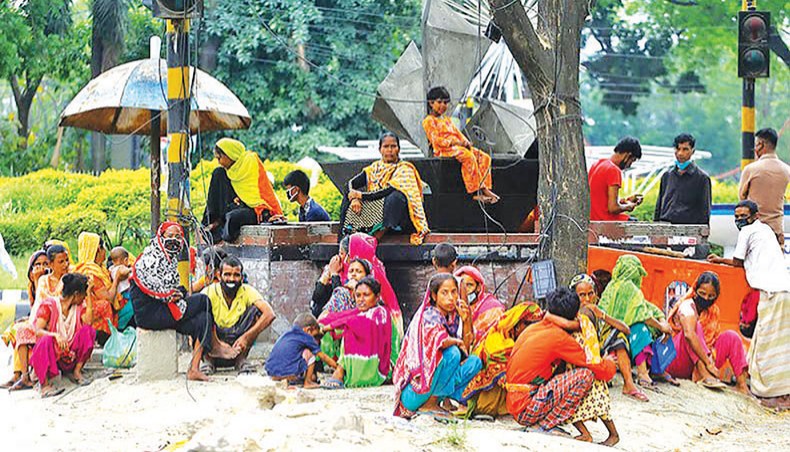DHAKA – Poverty in Bangladesh has risen dramatically over the past three years, with nearly 28% of the population now living below the poverty line, according to a comprehensive new study released by the Power and Participation Research Centre (PPRC).
The alarming findings, presented at the LGED auditorium in Dhaka on Monday, reveal that Bangladesh’s poverty rate has jumped from 18.7% in 2022 to 27.93% in 2025. Even more concerning, extreme poverty has nearly doubled, climbing from 5.6% to 9.35% over the same period.
Economic Pressures Mount on Households
The PPRC study, titled “Economic Dynamics and Mood at Household Level in Mid-2025,” was based on responses from 33,207 individuals across 8,067 families surveyed in May 2025. The research paints a stark picture of economic hardship gripping the nation.
Food costs have emerged as the primary burden, consuming approximately 55% of household spending, with families spending an average of Tk 10,614 monthly on food alone. This dramatic shift underscores the mounting pressure on household budgets amid ongoing economic challenges.
The study found that nationally, the average monthly household income stands at Tk 32,685, while expenses reach Tk 32,615—leaving virtually no room for savings. This razor-thin margin highlights the precarious financial situation facing millions of Bangladeshi families.
Urban-Rural Divide Emerges
A notable disparity has emerged between urban and rural areas. Urban households are experiencing declining incomes alongside rising expenses, with average monthly income dropping to Tk 40,578 from Tk 45,578 in 2022, while expenses have climbed to Tk 44,961.
Conversely, rural households have seen modest income growth, with average monthly earnings rising to Tk 29,205 from Tk 26,163 in 2022, and expenses remaining at Tk 27,162.
Triple Crisis Impact
PPRC Executive Chairman Hossain Zillur Rahman identified three converging crises driving the poverty surge: the lingering effects of COVID-19 (2020-2022), persistent inflation, and political-economic uncertainty.
The study also revealed that 18% of families remain vulnerable to slipping into poverty at any time, indicating that the actual number of people at risk could be even higher.
Breakdown of Household Expenses
Beyond food, the study detailed how families allocate their limited resources:
- Education: Tk 1,822 monthly
- Healthcare: Tk 1,556 monthly
- Transportation: Tk 1,478 monthly
- Housing: Tk 1,089 monthly
Expert Concerns and Recommendations
Speaking at the presentation, Rahman emphasized the need for a shift in economic planning priorities. “The interim government is focusing more on the macro economy than on the micro economy for valid reasons. But economic planning urgently requires a people’s lens,” he stated.
Rahman highlighted five critical areas demanding immediate attention: chronic illness burden requiring new social protection programs, support for female-headed households, rising debt burdens, increasing food insecurity, and the sanitation crisis affecting 36% of the population.
Employment Crisis Deepens
The PPRC chairman also addressed the employment situation, describing it as a “joblessness disaster” requiring urgent intervention. “We need serious thought and immediate action to address employment issues. This requires urgent discussion and effective measures right now,” Rahman warned.
Positive Development in Corruption
One bright spot in the study showed a reduction in bribery since August 2024, with reported incidents falling from 8.54% to 3.69% of respondents. However, corruption remains a persistent issue, with government offices, police, and political leaders still receiving the highest bribes.
The PPRC findings starkly contrast with previous government estimates and underscore the urgent need for comprehensive poverty reduction strategies as Bangladesh grapples with multiple economic challenges threatening the welfare of nearly 50 million citizens living in or near poverty.


